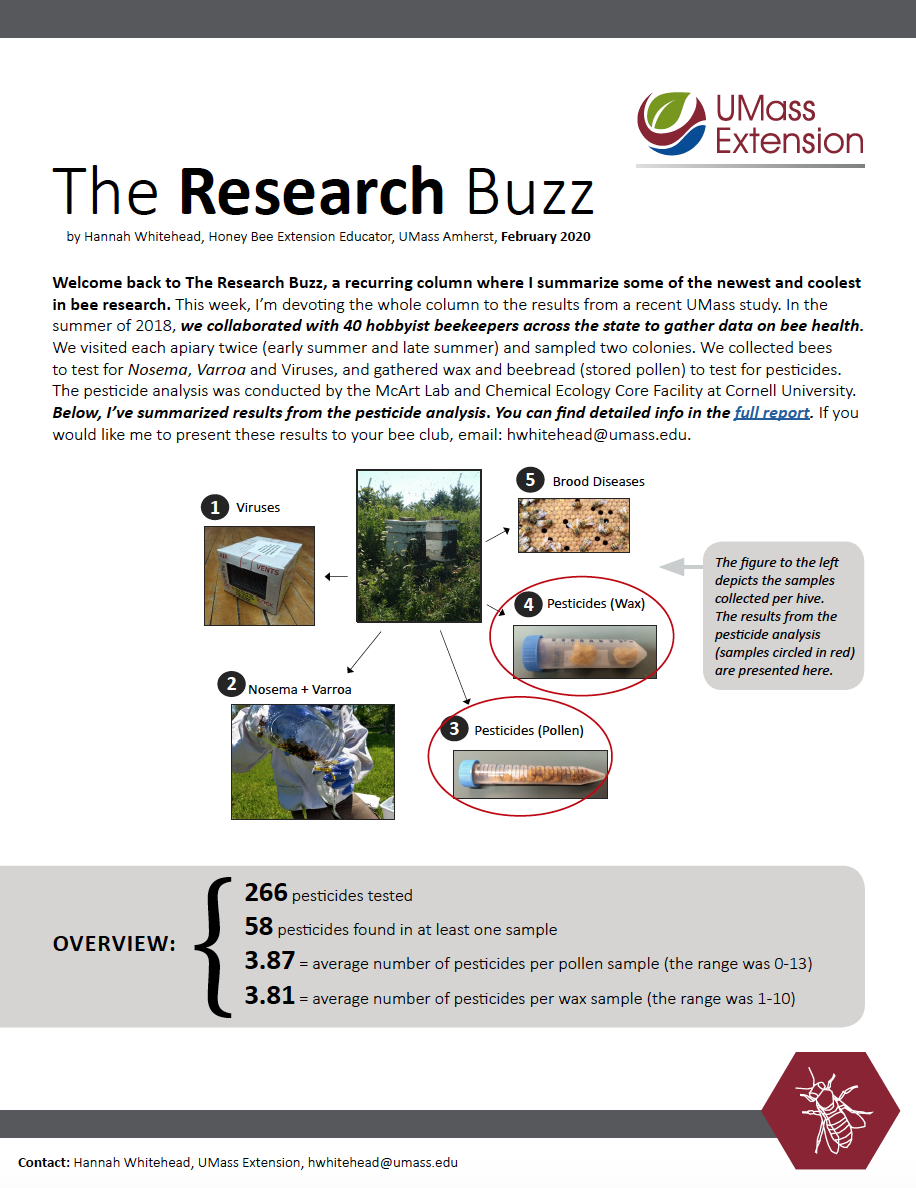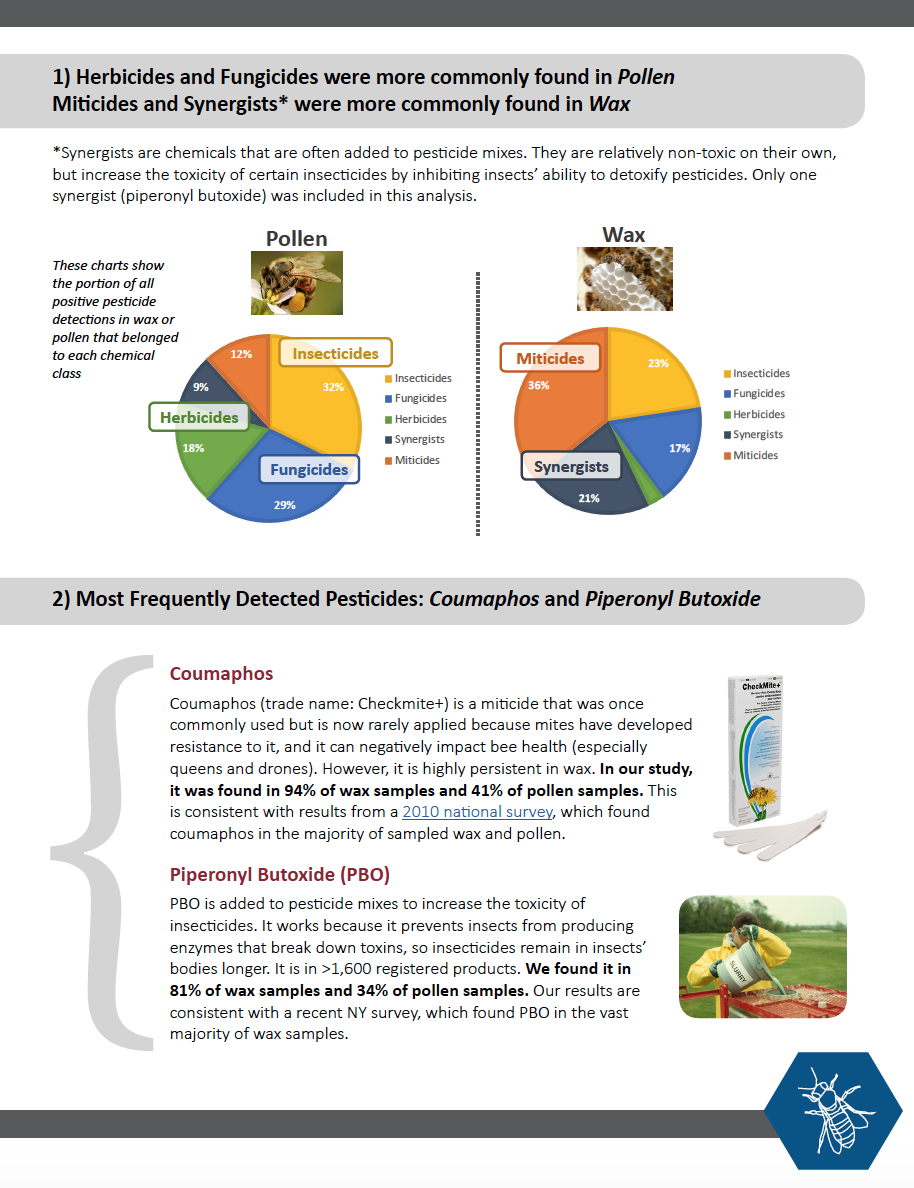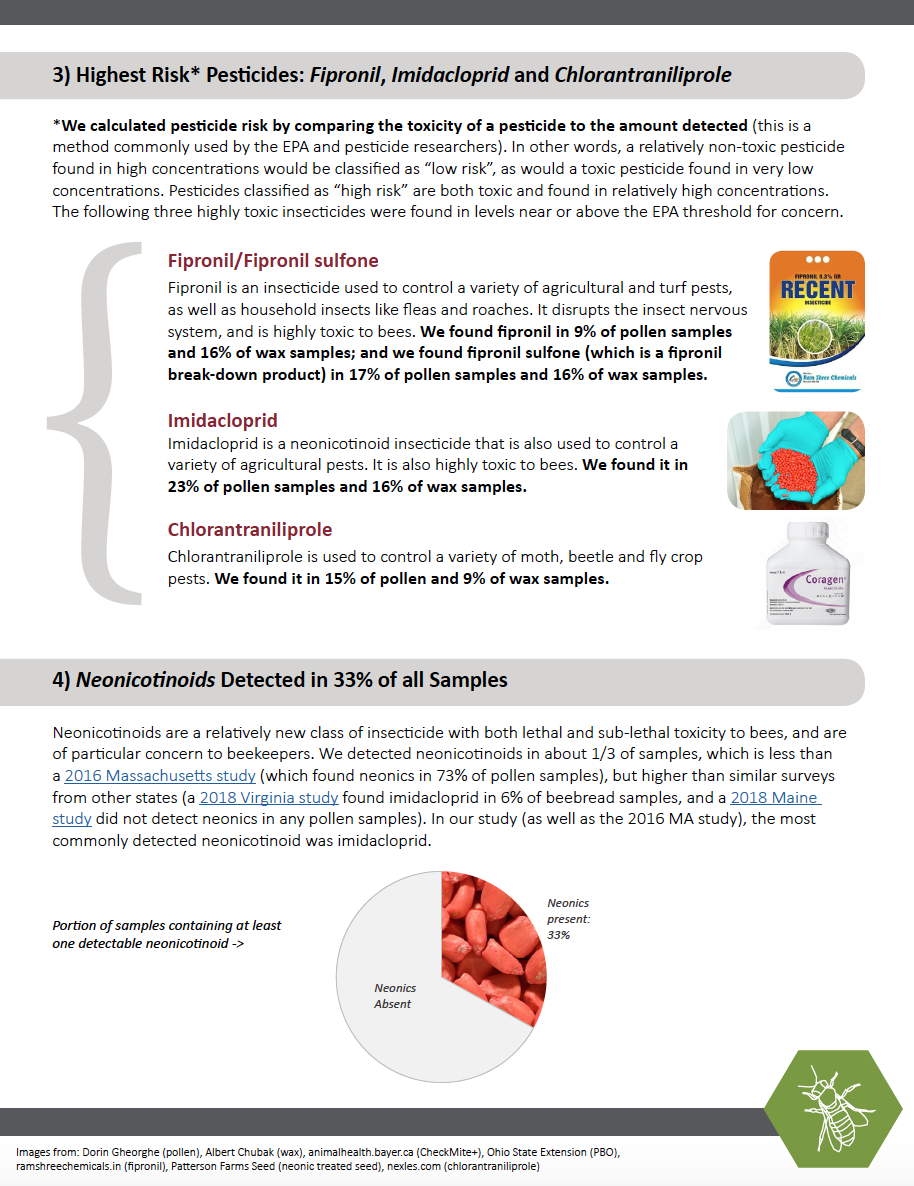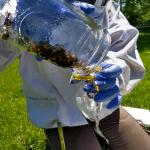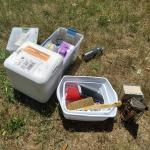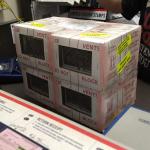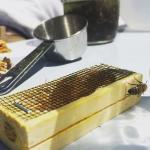2018 Massachusetts Hobbyist Health Survey
MA Hobbyist Health Survey
In 2018, UMass and MDAR collaborated with 40 hobbyist beekeepers across Massachusetts to carry out this beekeeper-initiated project. In early and late summer, we sampled two colonies from each beekeeper for Nosema, Varroa, viruses and pesticides. This survey gives us valuable information about pesticide and disease levels that can inform state-level decision-making.
Tips for protecting your hives from pesticides
- Control Varroa levels. Varroa mites feed on bees’ fat body, which is a critical organ for detoxifying pesticides. Studies show that bees that are parasitized by Varroa and exposed to pesticides fare worse than non-parasitized bees facing the same chemicals.
For information about Varroa management, check out the Honey Bee Health Coalition, request a free inspection by a state apiary inspector, or register for a “Fight the Mite” workshop. Also, avoid using CheckMite+ and Apistan to control mites. These products contain the miticides coumaphos and tau-fluvalinate, which accumulate in wax and negatively impact bee health. - Swap out old comb. Many pesticides accumulate in wax. To reduce pesticide levels in your hives, regularly replace old frames. This practice can also curb disease build-up in your equipment.
- Talk to your neighbors. Ask what products they spray on their gardens, lawns or farm fields. This includes products used to control ticks and fleas. Encourage them to use bee-friendly products or practices. For more information on pollinator-friendly pest control, explore these resources.
- Check pesticide labels and always follow label instructions. Many common products, including those used to control fleas and ticks, contain chemicals (like fipronil) that are highly toxic to bees. Consider finding bee-friendly alternatives. And ALWAYS apply products according to the label (the label is the law!).
- Use IPM practices to manage pests - and encourage your neighbors to do the same. IPM stands for Integrated Pest Management. It is a commonly used strategy for minimizing pesticide use. More info about IPM.
The full report:  MA Hobbyist Survey-Full Report
MA Hobbyist Survey-Full Report
Summary of pesticide results (PDF:  Pesticide Results Summary):
Pesticide Results Summary):
